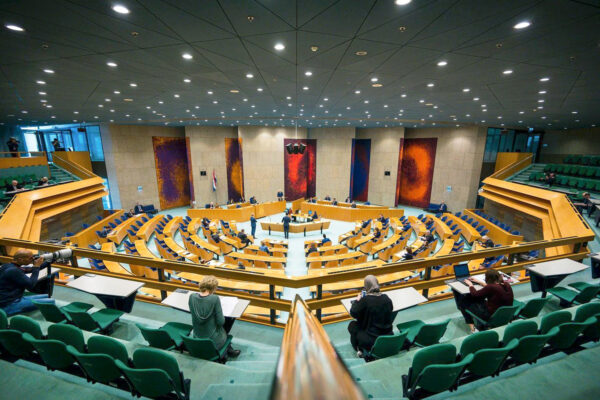
The Netherlands has broken a century-old record: seventeen parties won seats in the election in March, the highest since 1918, but defections from the centrist Christian Democrats and far-right Forum for Democracy would make this parliament the most fragmented since the year women got the vote.
Pieter Omtzigt, who narrowly lost an internal election for the Christian Democratic leadership a year ago, has resigned from the party. He now sits as an independent.
Wybren van Haga, who left Prime Minister Mark Rutte’s liberal VVD (of which I am a member) in 2019 to join Thierry Baudet’s Forum for Democracy, has split again and formed a new right-wing party with Olaf Ephraim and Hans Smolders. The three were appalled when Baudet compared the COVID-19 lockdown to the wartime Nazi occupation of the Netherlands.
The defections make it even harder for Rutte to avoid forming a coalition with the left.
Few alternatives
Omtzigt was one of Rutte’s leading critics in the last parliament and blocked a continuation of his party’s alliance with the liberal. He helped bring the so-called child benefits scandal to light, which prompted Rutte to resign in January. More than 20,000 Dutch families were falsely accused by tax authorities of benefits fraud.
Omtzigt’s supporters tend to be on the right, but his defection makes a government with the center-left more likely.
With Omtzigt, his Christian democratic CDA, Rutte’s right-liberal VVD, the left-liberal D66 and the right-wing JA21 had a one-seat majority.
Without him, the only plausible options are:
- A continuation of the coalition of VVD, D66, CDA and Christian Union, a small evangelical party that is socially conservative but left-leaning on climate, the economy and immigration (77 seats).
- A five-party coalition of VVD, D66, CDA, Labor and Greens (89 seats).
VVD and CDA would prefer the first, D66 the second.
Either Labor or the Greens would be enough for a majority (76 seats are needed), but the two will not go into government separately.
There is a right-wing majority in parliament of VVD, CDA, Geert Wilders’ Freedom Party, Baudet’s Forum for Democracy, JA21 and Van Haga’s new party — but VVD and CDA refuse to form a coalition with COVID deniers and Putin admirers.
To the left
A coalition with Labor and the Greens could pull the Netherlands to the left on everything from climate policy to taxes.
- D66, Labor and the Greens want to cut greenhouse gas emissions by reducing livestocks. That’s a tough sell to VVD and CDA, who get a lot of support from farmers.
- VVD and CDA support nuclear power, which is unacceptable to the left.
- All parties want to raise business taxes, but where the VVD calls for an additional €3.5 billion, Labor proposes a staggering €42 billion in tax increases.
- The five parties agree contractors enjoy too little job security compared to full-time employees, but where the right would make it easier for companies to hire workers full-time, the left would make it more expensive to hire freelancers. (See my article from last month for details.)
- Labor opposes competition in health care. The Greens would even abolish private insurance companies and replace them with public health corporations.
- D66, Labor and the Greens support naturalization of immigrants who were brought to the Netherlands as children. The VVD wants to switch to a Canadian-style points-based immigration system.
- VVD and CDA would build homes outside existing urban areas to reduce the Netherlands’ housing shortage. Left-wing parties are reluctant to sacrifice green space.
- All parties except the VVD want to abolish student debt.
The best hope for the right is that Labor and the Greens will overreach, and VVD and CDA can convince D66 and the Christian Union to continue the outgoing coalition. But even that would probably require concessions on climate and immigration.
